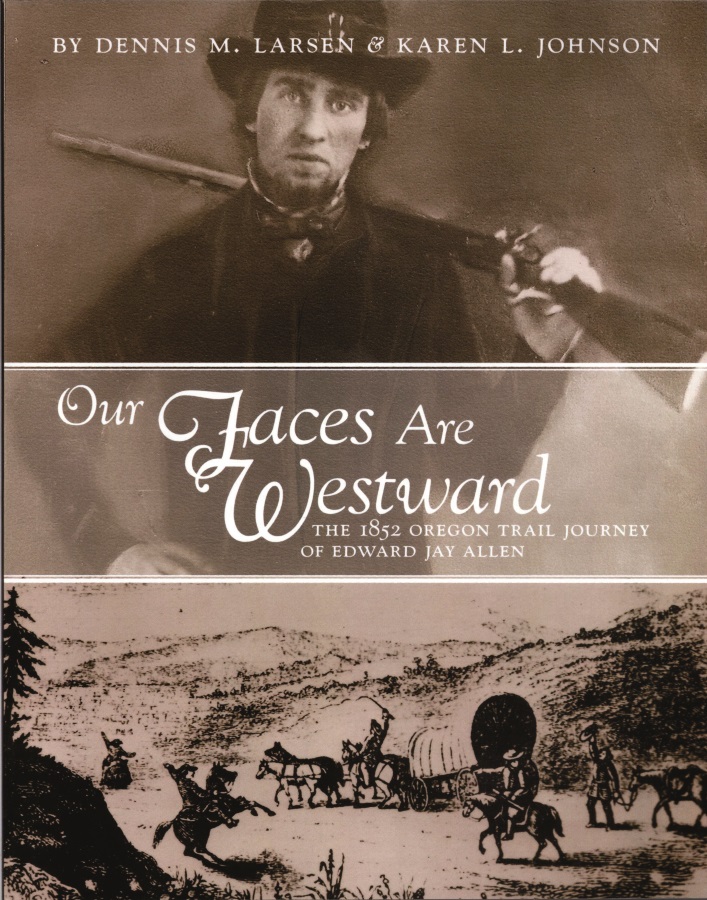Description
“At the age of twenty-two I found myself, if the doctors’ opinions were to be accepted, very dilapidated as to lungs and in a general condition of goneness that did discredit to several generations of sturdy ancestors. An outdoor summer in the hills of Westmoreland County, and its resultant benefits, gave the cue for a more extended outing, from which grew the idea of a trip to Oregon. It seemed a kill-or-cure remedy and offered adventure.”—Edward Jay Allen, 1908 manuscript
In 1852, in search of better health, a sickly Edward Jay Allen traveled by steamboat from Pittsburgh, Pennsylvania, to Council Bluffs, Iowa, where he joined a wagon train of Iowa farmers en route to Oregon. The group successfully navigated the trail through Nebraska, took the Child’s Cutoff in Wyoming, and, after South Pass, followed the Sublette Cutoff. At Three Island Crossing in Idaho, Allen had become exhausted by the heat, dust, and insufficient water. Crippled by a badly sprained ankle, Allen led a small group who decided to turn their wagon beds into boats and float down the Snake River. Following a near-fatal but extremely exciting adventure over falls and rapids, Allen arrived at Fort Boise where he took over a ferry operation from Ezra Meeker, a young fellow traveler. After three weeks, allen left the ferry and continued west. He lost his horse at the foot of the Blue Mountains and had to struggle on foot, short of food and water, across the eastern Oregon desert. Despite the dust-plagued, arduous cross-continent adventure, Allen was cured of his ill health when he finally arrived in Portland.
To tell the tale of this remarkable young man, the authors rely primarily on long-forgotten letters written by Allen while he was on his kill-or-cure adventure. These letters are supplemented by Allen’s recently-discovered Oregon Trail diary, an unpublished manuscript written in his later years, and a set of contemporary letters written to Allen by his siblings as he traveled west. Allen’s well-written letters, full of descriptive detail, poetry, and humor, bring the emigrant trail experience to life.
Photographs / maps / bibliography / index / 262 pages (2012)











